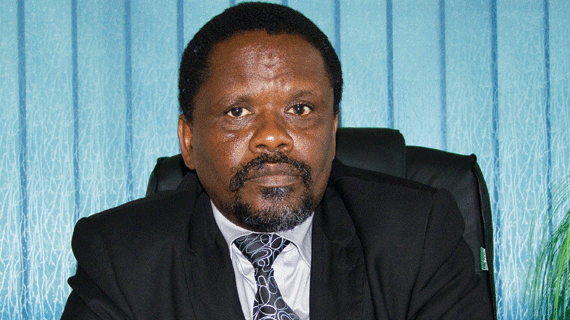
THE coincidence of this report with the government mending bridges with neoliberalism is striking. Zanu PF and MDC-T ready acceptance of the report further adds to the suspicion.
Is this report a stage-managed strategy, or is it a timely mouthpiece for the recently adopted neoliberalism? A conspiracy is smelt.
The title of the report is Zimbabwe International Re-engagement; The Long Haul To Recovery. International re-engagement simply refers to taking aboard neoliberalism and its Bretton Woods Institutions (IFIs).
The Economic Structural Adjustment Programme (Esap) failed dismally, but eventually, Esap 2 is with us. Indeed, it has been a long haul for neoliberalism to wait for the most opportune time to strike the State at its weakest link. The following catch the eye in the report:
- It acknowledges Zanu PF dominance in the political arena — hence the strategy to invite other stakeholders to join forces in taming the untamable,
- It calls upon opposition and civil society to renew and reform or transform: Is this reference to leadership or organisational renewal? Reformation and transformation in what form, is it an ideological transformation?
- Political parties are warned to embrace the collective effort if they are to remain credible. Credible to whom, the electorate or neoliberalism?
- New government is to be judged by its governance and human rights track record — Neoliberalism definition of good governance refers to trade liberalisation, deregulations and cuts on public expenditure and removal of subsidies and their human rights include among other homosexual and lesbian rights. It is insensitive to other people’s cultural norms and the value system. Human rights are now regarded as even above God’s commandments and instructions. God’s instruction is for Adam to have Eve and not vice-versa,
- Stakeholders Opposition, civil society and business, labour is deliberately excluded because neoliberalism has no term labour in its dictionary.
- Engagement must be cautious, thoughtful and critical- cautious and thoughtful in not blocking global capital, as this is critical in the neoliberal agenda,
- Need for a truly national effort in addressing both political and economic problems.
This is a realisation that the nation is not Zanu PF and MDC-T. One of the problems which made so-called Government of National Unity dysfunctional was the tendency by other players to behave like big brothers. Astonishingly, both Zanu PF and MDC-T made the nation believe they could not remain any longer in the so-called inclusive government. One wonders as to what has changed now which has miraculously changed their minds.
- It is acknowledged problems are daunting yet surmountable with the assistance of donors and other stakeholders- again we see neoliberalism with its train of funders,
- Stakeholders, foreign investors to be specific, are advised to join the gravy train rather than await the failed programme of regime change,
- It informs that tactical or long term decisions determine the future- this is in reference to change in ideology and policies to suit global capital’s comfort,
- Call to create genuine participatory democracy and electoral reforms: This is a call to social dialogue which is anchored on parties accepting and recognising each other.
Commentators on this report make interesting observations. Godfrey Kanyenze applauds the proposed national dialogue as a powerful tool, hopefully that will enable citizenry to celebrate their diversity in a polarised environment. Internally, there is need to address polarity. More so that stakeholders now seem to be singing from the same hymn book. There is no more imperialist puppets or we all have become ones.
John Robertson advocates for an improved credit rating, a reduction in political risk, rejoining the likes of the Commonwealth and towing the neoliberal line. The question is: Who sets standards in Europe and why a different approach in Africa?
On a different note, Christopher Mugaga suggests approaching other economic blocs, like Brics and Comesa.
- Chamisa under fire over US$120K donation
- Mavhunga puts DeMbare into Chibuku quarterfinals
- Pension funds bet on Cabora Bassa oilfields
- Councils defy govt fire tender directive
Keep Reading
Tendai Biti warns that the economic stagnation may lead political instability. Rugare Gumbo subscribes to the re-engagement agenda on condition that it benefits people and if this will lead to removal of individual sanctions. Individuals on the list of sanctions are the people that must benefit.
Lastly, Douglas Mwonzora is also supportive of the national dialogue initiative. However, he is not comfortable with renewal when it targets the leadership of his party. Surprisingly, this is the MDC-T.
There is also need for social dialogists at heart, who yearn for a prosperous Zimbabwe. Various scenarios present themselves from the Chatam House Report. Scenario one is the realisation that there is a possibility of forming a social movement made up of people disgruntled with both Zanu PF and MDC-T politics of self-preservation, hence the warning to move fast or lose credibility.
Secondly, neoliberalism stands to lose ground in the event that both Zanu PF and MDC-T lose credibility.
Lastly, as long as the big brother attitude witnessed during the inclusive government persists, the envisaged national dialogue is doomed to fail.
Moses Tsimukeni Mahlangu is the general-secretary for Zimbabwe Urban Councils Workers’ Union. He is a labour consultant and arbitrator. Feedback: Email: [email protected] Cell: 0775 547 120 or 0712 864 275










